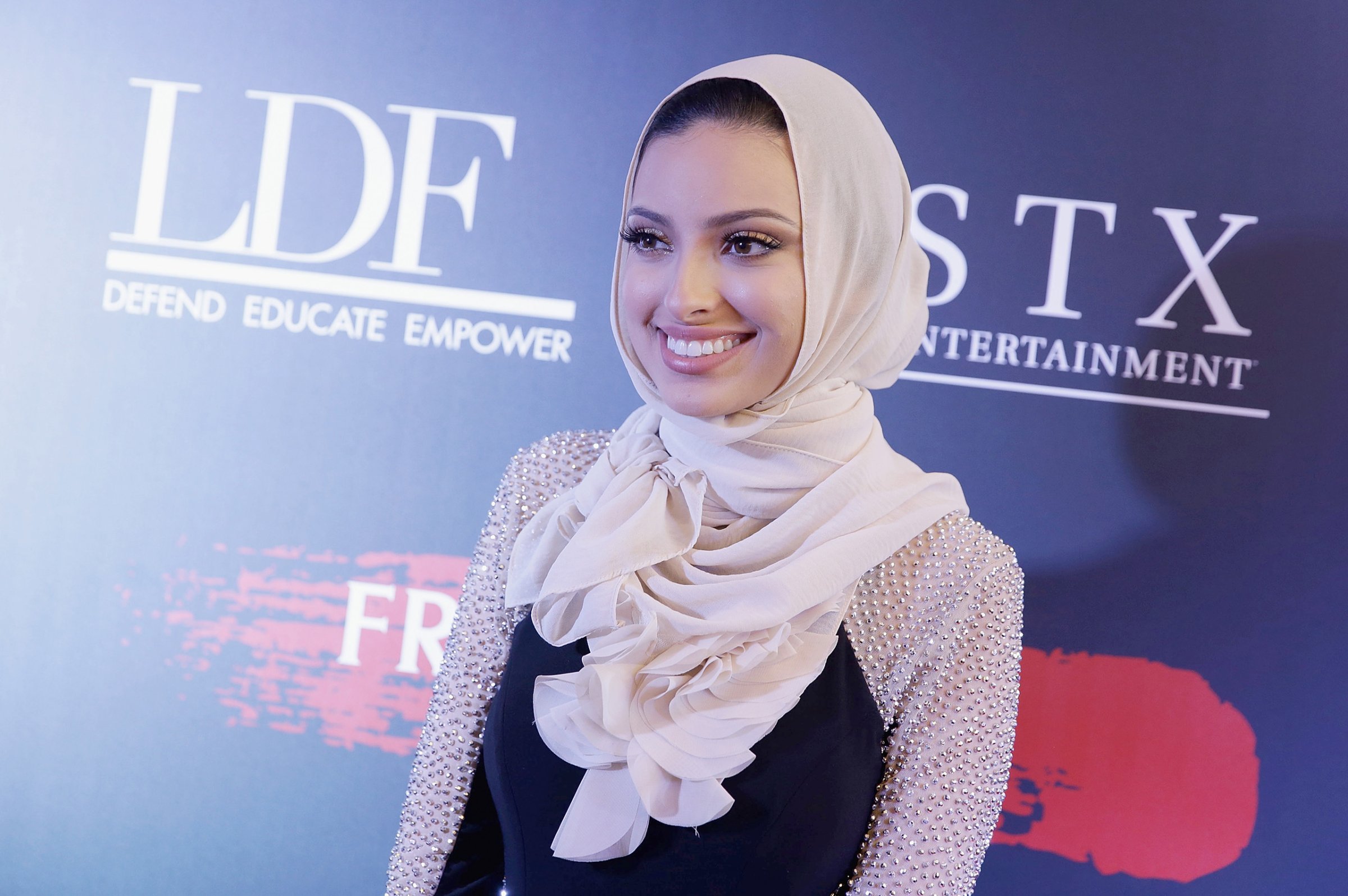
Playboy put a Muslim woman who wears a hijab on its pages for the first time ever—and not everyone is happy about it.
Noor Tagouri, a journalist for Newsy, appears in the infamous magazine as part of the October issue’s “Renegades” spread, which features a diverse group of fully clothed millennials who the magazine credits with compelling change in their respective fields. Tagouri hopes to become the first hijabi anchor on network television and gained recognition for a TEDx talk and campaign encouraging women to embrace their individuality.
“I will have succeeded in effecting change when all girls realize they can do anything they want without having to sacrifice who they are as a person,” Tagouri told Playboy. “I may dress a little different—I’m a reporter who happens to wear a head scarf and I live in my hoodie—but being a story teller, motivational speaker, entrepreneur and unapologetically myself has opened so many doors for thousands of people.”
Tagouri’s milestone comes almost a week after Women’s Running unveiled Rahaf Khatib, a Muslim marathoner who wears a hijab, as its October cover star. While Khatib’s cover was widely praised, Tagouri has been subject to harsh criticism for her decision to appear in Playboy, with a number of social media commentators using sexist epithets to describe the journalist. Others have criticized the famously risqué magazine, which stopped publishing fully nude photos in 2015, for using the spread to “exploit” Muslim women. Playboy declined to comment on the criticism to Motto.
“The presence of a hijab-wearing woman in a magazine known for lasciviously undressing and objectifying women is jarring in a number of ways, and there are reasons to believe that’s what Playboy intended,” Asma T. Uddin, the editor in chief of Muslim women’s website altmuslimah.com, and freelance journalist Inas Younis wrote in an op-ed in The Washington Post. “Playboy’s philosophy celebrates open sexuality and believes that modesty and chastity are a product of a shaming and oppressive culture, which it condemns.”
But others have jumped to her defense, saying that Tagouri’s shoot is empowering and inspiring. Many of Tagouri’s supporters noted that two prominent Muslim men, Malcolm X and Muhammad Ali, faced little criticism for their interviews with Playboy (in 1963 and 1975, respectively.)
“Criticizing Playboy magazine’s role in controlling women’s lives seems very hypocritical when debating a Muslim woman’s right to share her story with a journalist working with that publication,”
Aymann Ismail wrote for Slate. “Sadly, it’s just another example of a Muslim woman being told how to live her life.”
Tagouri did not immediately respond to Motto’s request for comment, and hasn’t weighed in publicly beyond retweeting supporters. But she told Playboy that she doesn’t pay attention to negativity that can come because of her Muslim faith.
“If by backlash you mean hate and criticism, I don’t read or pay attention to any of it,” she told Playboy. “I constantly remind myself to just do the work I believe in and ignore the angry people behind computer screens.”
More Must-Reads from TIME
- Cybersecurity Experts Are Sounding the Alarm on DOGE
- Meet the 2025 Women of the Year
- The Harsh Truth About Disability Inclusion
- Why Do More Young Adults Have Cancer?
- Colman Domingo Leads With Radical Love
- How to Get Better at Doing Things Alone
- Michelle Zauner Stares Down the Darkness
Write to Samantha Cooney at samantha.cooney@time.com